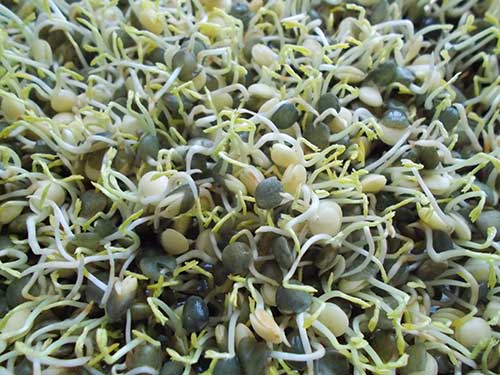Nutrition and Food
The body requires more than 40 different nutrients to maintain good health and no one food supplies all of them. Time constraints, tiredness and a jadedness around the whole subject of nutrition are the most common obstacles people cite for not adhering to a healthy diet. Adopting healthy eating habits that become routine can provide lifelong health benefits. The well researched connection between good nutrition and disease prevention suggests it is worthwhile ensuring the right balance and variety of foods to meet our body’s daily needs for energy, growth and repair.
“Poor nutrition can lead to reduced immunity, increased susceptibility to disease, impaired physical and mental development, and reduced productivity” ~ the World Health Organisation
The chemical body burden
The food industry has changed the focus of food from being simply nutritious to something to satisfy the appetite (mind) rather than hunger (body). Refined foods contain chemicals to enhance flavour, visual appeal and shelf-life. Most food chemicals cannot be digested and end up being stored for years in fat tissue. Problems occur when the toxic load accumulates into a chemical burden that can undermine normal body functioning.
The liver and kidneys are the body’s filtering system and often the first organs to be affected by a chemical burden, which can disrupt the endocrine system and cause hormonal imbalances. The rise in obesity, infertility, metabolic syndrome and auto-immune disorders are increasingly being linked to the chemical body burden.¹
Common sense tells us the fresher the better and that consuming food in as close to its natural state as possible, grown or produced as close to home, with the least amount of added chemicals is best.

Too often we are motivated by chronic bad health and digestive upsets or excessive weight gain to change our eating habits. It takes a little effort to get started but once you start feeling the benefits it gets easier and more rewarding. The right balance of nutrients can help to prevent illness, assist the recovery process, improve overall health, energy levels and enjoyment of life.
Oxygen, water, and exercise are often overlooked, but these are also essential for maintaining health on physical, emotional and mental levels. Maintaining well-being means maintaining a healthy mind, body, and spirit so that you can enjoy life and the freedom that good health allows for.
9 simple guidelines for improved nutrition:
- Eat a wide variety of food in as close to its natural state as possible.
- Where possible, choose organic to avoid added food chemicals.
- Choose whole grains over bleached and refined grains, e.g.: brown rice or bread over white rice or bread.
- Use herbs and spices to season your food instead of ready-made condiments and sauces.
- A small salad of bitter green leaves before your main meal will stimulate the release of digestive juices throughout the digestive system.
- Eat slowly and don’t drink with your meals to optimise digestion.
- Snack on raw fruit and vegetables and include some raw food in your daily diet.
- Eat fresh produce and only eat fruit that is fully ripened.
- Hydrate: sip water throughout the day.
Personal Nutrition
The iris analysis enables me to prioritise the sequence and pace of dietary changes that are most relevant to you. It’s not about giving up all your favourite foods but more of a discovery of how to make simple changes for immediate and long-term improved health. If you are suffering with digestive upsets, high/low blood pressure, allergies, arthritis, diabetes or other chronic conditions, you may be surprised by just how much your quality of life can be improved by simple dietary and lifestyle changes. You can start today by contacting me to make your first appointment.
1. http://www.ewg.org/research/body-burden-pollution-newborns/human-health-problems-rise
